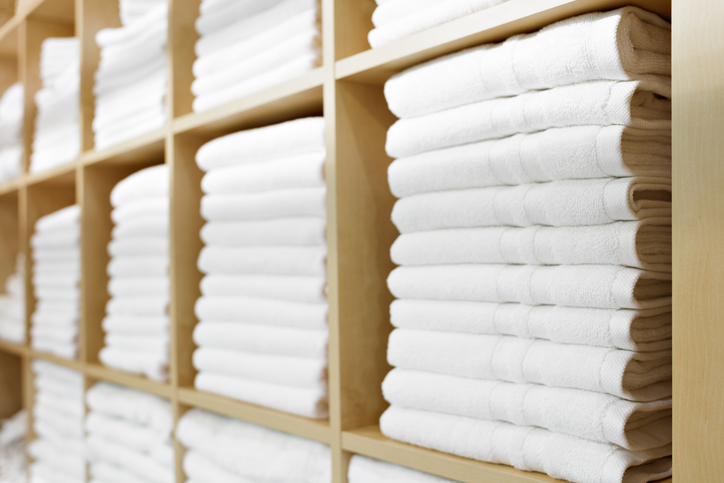How Laundry Automation Will Improve Your Hotel Management

Managing a hotel involves various tasks including laundry. Management of laundry in the hospitality industry can make or break your business. Automation is the order of the day today in all industries. And, it has great potential to enhance hotel management processes like laundry service. Reliance on quality washing equipment backed by analytics solutions makes laundry management more efficient. Read on to discover how laundry automation using RFID tracking is a game-changer in hotel laundry management.
Utilizing technology in laundry management
Efficient laundry management is important in the hotel industry. Guests expect to find clean linen all the time. Running an in-house laundry section comes with various costs. And, it is prone to various mistakes that might contribute to customer dissatisfaction. Fortunately, outsourced laundry service backed by automated processes helps improve laundry management. Automated laundry involves the use of control systems that manage equipment to handle various aspects of the linen cleaning process.
Commercial automated laundry allows eliminating various processes that required human labor before. This contributes tremendously to enhancing consistency and quality service. Hotel laundry automation has various perks including reporting, monitoring, and alerts for tracking performance. In turn, you enjoy improved performance and saving a lot of money.
How does laundry automation work?
Apart from features such as smart washing equipment and dryers, data analytics solutions make commercial laundry efficient. When you outsource a hotel linen laundry service in Manchester, each piece of your linen receives Radio Frequency Identification (RFID) chip. This allows gathering actionable data that benefits your laundry operations as the linen goes through the cleaning process.
Expectations from RFID linen tracking
Limits laundry sorting
The laundering process includes sorting various textiles that cost staff a lot of time to complete. Fortunately, with an RFID chip on each item, a reader sends a signal that reads the tags while on the assembly line. After reading the tag, the software determines the kind of item and directs it where it should go. This can be a collection point or machine.
The software readings are visible on a display to make it easy for the operator to verify each operation. Relying on RFID eliminates manual sorting leading to saving plenty of time. Just few people are needed to direct the items to the next process instead of reading bar code or manually identify the linen.
Precise records of wash count
Each garment has a laundry wash cycle. So, access to wash cycle analytics allows predicting the end-of-life of your linen. Some linen is made to withstand a limited number of high-power wash cycles before starting to tear. Having no records of wash counts makes estimating the end-of-life of the garment hard. This complicates budgeting for replacements.
From the washing machines, the RFID reader detects the tag on the linen and the wash cycle count is update during each wash in the software database. For any linen about to reach its end-of-life, the software sends a notification to the laundry attendant to order a replacement for the same type of linen. Doing this ensures that you always have enough linen for your guests without annoying excuses.
Helps avoid loss and theft
Using a manual inventory system to account for lost or stolen linen is not foolproof. Human error is inevitable since your staff has to count hundreds of textiles. After the counting, sorting the garments comes next. In the case of stolen linen, it is very hard to figure out the cause or the culprit. However, using an RFID allows each tag to have a unique EPC number for identifying any lost garment and the last stage before it disappeared. You can tell the last destination room for each piece of garment.
Quick and easy access to inventory
Knowledge of inventory size allows accurate planning, efficient service while limiting the loss of linen. Ignoring to undertake regular inventory counts increases the chances of losing linen. Additionally, inaccurate inventory encourages potential delays in hotel management. Having RFID tags on your linen allows faster stock taking, it also makes managing operations more efficient.
Additionally, the availability of RFID readers in the storage rooms allows regular inventory taking. This allows accurate knowledge of lost or stolen linen. Counting your hotel linen using RFID allows easy coordination with your laundry service provider. It also allows taking inventory before you dispatch your linen to the cleaning facility and to ensure that there is none lost during the laundering process.
Bottom line
Automated commercial laundry aims at streamlining the laundry management system for hotels, spas, and restaurants. Technology allows the use of smart equipment and data analytics to make the laundering process more efficient and much faster. It is a smart idea for hotel owners and managers to outsource the laundry department to a service provider with an automated process. The use of RFID tags makes budgeting replacements easier while streamlining operations by making sorting easier.